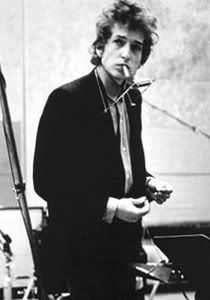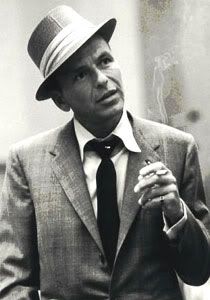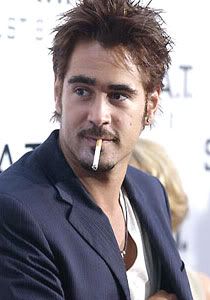The Sin Tax Reform Law, which restructured the excise tax on alcohol and
cigarette products, has opened the market for new players, according to
a tobacco executive.
Japan Tobacco Inc. general manager Manos
Koukourakis said the sin tax law diversified the market and led to the
influx of new foreign brands.
Koukourakis said the influx of foreign brands led consumers to try new brands of cigarettes.
“Because of the influx, consumers have more choices,” he said.
Data
from an independent research firm showed consumers started to change
cigar brands, following the enactment of the Philippine excise tax bill.
Philip
Morris Fortune Tobacco Corp. Inc., which used to control at least 90
percent of the market prior to the passage of the law, saw its share
shrink to 76.2 percent as of June 2013.
JTI covers about 3.2
percent, while Mighty had a 18.7-percent share. British American
Tobacco, maker of Lucky Strike, had less than 2 percent.
Wednesday, December 25, 2013
Monday, December 16, 2013
Smoking quit
The best smoking cessation aid on the planet is your own
determination to stop. If you aren’t motivated and committed to kicking
the habit, there isn’t a quit aid available that can help you. But if
you are, any of them can work beautifully. Discuss the options with your
doctor and choose the quit aid that best suits your needs.
When smoking cigarettes has played a large part in your life, quitting smoking may not be that simple. Fortunately, the U.S. Food and Drug Administration has approved seven over-the-counter stop smoking aids – five of these help in managing nicotine withdrawal symptoms, while the other two help in reducing cigarette cravings.
Here, you will learn about different proven stop smoking methods like Water Therapy, Psychological Therapy and Nicotine Replacement Therapy. This section also deals with other useful stop smoking aids such as nicotine nasal sprays, nicotine lozenges, nicotine inhalers, nicotine patches, nicotine gum and stop smoking pills.
When smoking cigarettes has played a large part in your life, quitting smoking may not be that simple. Fortunately, the U.S. Food and Drug Administration has approved seven over-the-counter stop smoking aids – five of these help in managing nicotine withdrawal symptoms, while the other two help in reducing cigarette cravings.
Here, you will learn about different proven stop smoking methods like Water Therapy, Psychological Therapy and Nicotine Replacement Therapy. This section also deals with other useful stop smoking aids such as nicotine nasal sprays, nicotine lozenges, nicotine inhalers, nicotine patches, nicotine gum and stop smoking pills.
Friday, November 29, 2013
New study finds social media is more addictive than cigarettes and alcohol
Do you consistently decline getting involved with Facebook, Twitter, or
any other other social network scheme? Don't let others make you feel
guilty. You may be relieved to know you've made the right decision about
refusing more social obligations than are worth handling.
A new study has discovered that social networking or checking social email is more addictive than alcohol and cigarettes. Hard to believe, but that's what was reported. All this "checking out what others are doing no matter how trivial" is a time waster in the long run. But it is cheaper than booze and cigarettes and not as harmful. Dunhill cigarettes.
How the study was conducted
The study was conducted by Chicago University's Booth Business School. Ironically, Wihelm Hofmann and the Chicago research team used BlackBerry devices for checking in frequently with the 205 people participating in Wurtzburg, Germany. The participants' ages ranged widely, from 18 to 85.
They were asked seven times each day for a week what their impulses or desires were at the time and how strong they were. Smoking and drinking didn't rank high at all. Taking leisure time and rest or sleep came in first. But coming in second was the urge to check in on social media, which includes Facebook, Twitter, and plain social emailing.
This social media urge is less damaging or threatening in the long term than many other vices. But it can be a time waster, for sure. That is unless there are business, professional, educational, or intellectual pursuits involved.
But even among the latter more serious pursuits, there is another reason for concerns about using Facebook or Twitter. Socially, watch what you say even if you're kidding around in regards to politically charged topics.
A young British couple was detained and questioned for 12 hours upon arriving in Los Angeles at LAX on suspicions of arriving with criminal intentions. Those suspicions were based on two tweets from Leigh Van Bryan. One of them was "free this week, for quick gossip/prep before I go and destroy America?"
It turned out there was confusion over the use of the British slang "destroy," used to indicate excessive partying or "trashing" a place. This was not a prolonged email or series of emails. Simply one tweet on Twitter. So how did the TSA know?
Homeland Security or the CIA had to have caught that tweeted phrase as part of monitoring what everyone is up to, who they are, and where they're going. It has been rumored that intelligence agencies are using social networks as an inexpensive, convenient technique for tracking many 24/7.
It's not necessary to read everything for every email or tweet sent on the Internet by everyone on the planet. Intel agencies have software to identify certain keywords or phrases. Then it's a snap to zoom in on the profile, especially with Facebook, or IP address of whoever sent out those words or phrases.
A new study has discovered that social networking or checking social email is more addictive than alcohol and cigarettes. Hard to believe, but that's what was reported. All this "checking out what others are doing no matter how trivial" is a time waster in the long run. But it is cheaper than booze and cigarettes and not as harmful. Dunhill cigarettes.
How the study was conducted
The study was conducted by Chicago University's Booth Business School. Ironically, Wihelm Hofmann and the Chicago research team used BlackBerry devices for checking in frequently with the 205 people participating in Wurtzburg, Germany. The participants' ages ranged widely, from 18 to 85.
They were asked seven times each day for a week what their impulses or desires were at the time and how strong they were. Smoking and drinking didn't rank high at all. Taking leisure time and rest or sleep came in first. But coming in second was the urge to check in on social media, which includes Facebook, Twitter, and plain social emailing.
This social media urge is less damaging or threatening in the long term than many other vices. But it can be a time waster, for sure. That is unless there are business, professional, educational, or intellectual pursuits involved.
But even among the latter more serious pursuits, there is another reason for concerns about using Facebook or Twitter. Socially, watch what you say even if you're kidding around in regards to politically charged topics.
A young British couple was detained and questioned for 12 hours upon arriving in Los Angeles at LAX on suspicions of arriving with criminal intentions. Those suspicions were based on two tweets from Leigh Van Bryan. One of them was "free this week, for quick gossip/prep before I go and destroy America?"
It turned out there was confusion over the use of the British slang "destroy," used to indicate excessive partying or "trashing" a place. This was not a prolonged email or series of emails. Simply one tweet on Twitter. So how did the TSA know?
Homeland Security or the CIA had to have caught that tweeted phrase as part of monitoring what everyone is up to, who they are, and where they're going. It has been rumored that intelligence agencies are using social networks as an inexpensive, convenient technique for tracking many 24/7.
It's not necessary to read everything for every email or tweet sent on the Internet by everyone on the planet. Intel agencies have software to identify certain keywords or phrases. Then it's a snap to zoom in on the profile, especially with Facebook, or IP address of whoever sent out those words or phrases.
David Cameron 'U-Turn' Over Cigarette Packaging
David Cameron has been accused of a humiliating U-turn
after ministers dramatically revived the prospect of plain packaging for
cigarettes.
Public Health Minister Jane Ellison announced that the eminent
paediatrician Sir Cyril Chantler has been asked to carry out a rapid
review of the evidence, which will be completed by March.At the same time, changes will be made to the Children and Families Bill currently going through Parliament so that a ban on branded cigarette packets can be imposed "without delay" if the review concludes it is the right course.
The move was warmly welcomed by health campaigners, but the tobacco companies said a ban would have no impact on legal smoking levels and would simply lead to an increase in smuggling and counterfeit products.
In the Commons, Ms Ellison said the Government had ordered the review in response to evidence emerging from Australia which last year became the first country to introduce plain packaging.
But for Labour, shadow health minister Luciana Berger said ministers had been forced to act in the face of a "humiliating" defeat in the House of Lords on an amendment to the Children and Families Bill tabled by a cross-party group of peers.
"Only a Government as shambolic as this one could now be U-turning on a U-turn. The minister says we need another review but the Government have already had a review and the evidence is clear for all to see," she said.
"Standardised packaging makes cigarettes less attractive to young people. We should be legislating now, not delaying."
Ms Ellison insisted that the Government had made clear last July that it was simply taking a "pause", following a public consultation in 2012, to consider the evidence from Australia.
At the time the announcement was widely seen as killing off any prospect of legislation before the election in 2015, with critics blaming the Tories' controversial election strategist, Lynton Crosby.
There was an outcry when it later emerged that his firm, Crosby Textor had been advising Philip Morris Ltd as it lobbied the Government against plain packaging.
Ms Ellison said: "We will introduce standardised tobacco packaging if, following the review and consideration of the wider issues raised, we are satisfied there are sufficient grounds to proceed.
"We have to do this in a measured step-by-step way to make sure that when and if a decision is made it is robust and will withdraw all the inevitable challenges that might come its way."
However, there was anger among some Conservative MPs who accused the Government of caving in to the "nanny state brigade".
Monday, November 25, 2013
NYC officials raise smoking age to 21
Young New Yorkers who want to light up will soon have to wait for their
21st birthdays before they can buy a pack of smokes after lawmakers in
the nation's most populous city voted overwhelmingly to raise the
tobacco-purchasing age from 18 to 21.
The City Council's vote Wednesday makes New York the biggest city to bar cigarette sales to 19- and 20-year-olds, and one of only a few places throughout the United States that have tried to stymie smoking among young people by raising the purchasing age. The council also approved a bill that sets a minimum $10.50-a-pack price for tobacco cigarettes and steps up law enforcement on illegal tobacco sales.
"We know that tobacco dependence can begin very soon after a young person first tries smoking so it's critical that we stop young people from smoking before they ever start," Mayor Michael Bloomberg said in a statement after the council's vote.
Bloomberg, a strong supporter of tough smoking restrictions, has 30 days to sign the bills into law. The minimum age bill will take effect 180 days after enactment. Bomond cigarettes.
The city's current age limit is 18, a federal minimum that's standard in many places. Smoking in city parks and beaches already is prohibited as it is in restaurants.
Advocates say higher age limits help prevent, or at least delay, young people from taking up a habit that remains the leading cause of preventable deaths nationwide.
But cigarette manufacturers have suggested young adult smokers may just turn to black-market merchants. And some smokers say it's unfair and patronizing to tell people considered mature enough to vote and serve in the military that they're not old enough to decide whether to smoke.
"New York City already has the highest cigarette tax rate and the highest cigarette smuggling rate in the country," said Bryan D. Hatchell , a spokesman for R.J. Reynolds Tobacco Company, which makes Camel and other brands. "Those go hand in hand and this new law will only make the problem worse."
Another anti-smoking initiative pushed by the Bloomberg administration was previously shelved ahead of Wednesday's vote: forcing stores to keep cigarettes out of public view until a customer asks for them.
Newsstand clerk Ali Hassen, who sells cigarettes daily to a steady stream of customers from nearby office buildings, said he didn't know if the new age restrictions would do any good.
While he wouldn't stop vigilantly checking identification to verify customers' age, Hassen doubted the new rules would thwart determined smokers.
"If somebody wants to smoke, they're going to smoke," he said.
Similar legislation to raise the purchasing age is expected to come to a vote in Hawaii this December. The tobacco-buying age is 21 in Needham, Mass., and is poised to rise to 21 in January in nearby Canton, Mass. The state of New Jersey also is considering a similar proposal.
"It just makes it harder for young people to smoke," said Stephen McGorry, 25, who started smoking at 19. He added that had the age been 21 when he took up the habit, "I guarantee I wouldn't be smoking today."
The City Council's vote Wednesday makes New York the biggest city to bar cigarette sales to 19- and 20-year-olds, and one of only a few places throughout the United States that have tried to stymie smoking among young people by raising the purchasing age. The council also approved a bill that sets a minimum $10.50-a-pack price for tobacco cigarettes and steps up law enforcement on illegal tobacco sales.
"We know that tobacco dependence can begin very soon after a young person first tries smoking so it's critical that we stop young people from smoking before they ever start," Mayor Michael Bloomberg said in a statement after the council's vote.
Bloomberg, a strong supporter of tough smoking restrictions, has 30 days to sign the bills into law. The minimum age bill will take effect 180 days after enactment. Bomond cigarettes.
The city's current age limit is 18, a federal minimum that's standard in many places. Smoking in city parks and beaches already is prohibited as it is in restaurants.
Advocates say higher age limits help prevent, or at least delay, young people from taking up a habit that remains the leading cause of preventable deaths nationwide.
But cigarette manufacturers have suggested young adult smokers may just turn to black-market merchants. And some smokers say it's unfair and patronizing to tell people considered mature enough to vote and serve in the military that they're not old enough to decide whether to smoke.
"New York City already has the highest cigarette tax rate and the highest cigarette smuggling rate in the country," said Bryan D. Hatchell , a spokesman for R.J. Reynolds Tobacco Company, which makes Camel and other brands. "Those go hand in hand and this new law will only make the problem worse."
Another anti-smoking initiative pushed by the Bloomberg administration was previously shelved ahead of Wednesday's vote: forcing stores to keep cigarettes out of public view until a customer asks for them.
Newsstand clerk Ali Hassen, who sells cigarettes daily to a steady stream of customers from nearby office buildings, said he didn't know if the new age restrictions would do any good.
While he wouldn't stop vigilantly checking identification to verify customers' age, Hassen doubted the new rules would thwart determined smokers.
"If somebody wants to smoke, they're going to smoke," he said.
Similar legislation to raise the purchasing age is expected to come to a vote in Hawaii this December. The tobacco-buying age is 21 in Needham, Mass., and is poised to rise to 21 in January in nearby Canton, Mass. The state of New Jersey also is considering a similar proposal.
"It just makes it harder for young people to smoke," said Stephen McGorry, 25, who started smoking at 19. He added that had the age been 21 when he took up the habit, "I guarantee I wouldn't be smoking today."
Top 10 states that are addicted to smoking
Antismoking efforts are hard to avoid nowadays. Cigarette packaging
got graphic new warning labels in 2012 (though they'll soon be replaced
thanks to a big-tobacco lawsuit), and 38 states have at least some
restrictions as to where a person can light up. (New York State has even
banned smoking in public parks.) But despite this increased regulation,
plenty of Americans continue to smoke—like chimneys.
Using government data on smoking (and quit rates) rates, smoking bans and restrictions, cigarette taxes and sales, and deaths attributable to smoking, Health.com identified the 10 states where people are most likely to literally smoke themselves to death. Here they are, in alphabetical order.
Alabama
The Heart of Dixie has one of the highest youth smoking rates in America. The CDC reports that in 2011, nearly 23% of kids in grades 9-12 were smokers. To curb this alarming trend, several colleges have restricted tobacco use on campus, including Troy University, Miles College, and Auburn University.
Smoking culture continues off college campuses, however. Residents are still allowed to light up in workplaces, restaurants, and bars, and cigarette taxes are among the lowest in the nation.
Arkansas
Roughly 27 percent of adults in Arkansas smoke (compared to just over 20 percent nationwide), and in the most recent government surveys, less than 3% of smokers had managed to quit within the previous 12 months.
The tobacco smoke hangs so thick over the Natural State that Governor Mike Beebe has made secondhand smoke a statewide priority. In July 2011, for instance, a law went into effect prohibiting an adult from smoking in a car with children under the age of 14, broadening a 2006 law that banned smoking in the car with kids under 6. Only six other states—California, Louisiana, Illinois, Oregon, Utah, and Maine—have similar laws.
Kentucky
States, not just people, can be addicted to tobacco. Tobacco production is an important industry in Kentucky, which along with North Carolina generates two-thirds of the nation's tobacco harvest. (In 2012 Kentucky farmers grew about 150 million pounds.)
People aren't necessarily more likely to smoke if they live in a tobacco-growing state, but Kentuckians are certainly doing their part to help the local economy. The state has the nation's second-highest adult smoking rate, as well the highest rate of smoking-related deaths. Most alarming of all, Kentucky is encouraging more smokers: The smoking rate among high schoolers is the highest in the U.S.
Louisiana
Alcohol use and smoking are closely linked, so in a state known for its love of partying and drive-through liquor stores, it's not surprising that more than one in four Louisiana adults also smokes.
Like many people, Louisiana residents apparently love to light up when they have a drink in hand. Despite multiple attempts, State Senator Rob Marionneaux has been unable to win support for his proposed ban on smoking in Louisiana bars. The state currently prohibits smoking in restaurants, public buildings, and most work sites, but opponents worry the ban would hurt bars' profits.
Mississippi
Mississippi is one of only two states nationwide without any restrictions on smoking at child-care facilities. The state has banned smoking in government buildings and on college campuses, but proposals for a broader ruling haven't been met with much approval.
Supporters were looking to ban smoking in restaurants and nongovernment buildings, but the proposal fell apart in March of 2011. Opponents argued that the government shouldn't tell private businesses how to operate. But it may be even more simple: Some residents told local newscasters they wouldn't want to stop lighting up when they're out and about.
Missouri
The federal government slaps a $1.01 tax on every pack of cigarettes sold in the U.S., but taxes—and therefore prices—still vary widely from state to state. The average pack of cigarettes costs more than $10 in New York, thanks to the country's heftiest per-pack tax ($4.35)—three times higher than the national average. In Missouri, meanwhile, the average pack retails for just $4.50 because the state taxes a mere $0.17 per pack.
The Show-Me State is passing up a proven way to reduce smoking, especially among young people. A 10% price hike can reduce the amount of cigarettes consumed by about 4%, according to the Centers for Disease Control and Prevention (CDC).
Oklahoma
The rates of smoking and smoking-related deaths in Oklahoma rank high nationally, and very few smokers are quitting. But there may be change on the horizon: In April 2013, a new state law gave communities local control over smoking in public parks and municipal facilities. The measure also banned use of all tobacco products in all state-owned buildings.
As the birthplace of the original Marlboro Man, Oklahoma has made a small but lasting contribution to the smoking scourge. Darrell Winfield, the child of farmers, was discovered by Marlboro in 1968 and was featured in the majority of the brand's advertisements over the next two decades.
South Carolina
South Carolina has the nation's lowest smoking-cessation rate. In the most recent government survey, only about 2 percent of smokers had successfully quit for at least a year (compared to a high of 7% in Vermont), which isn't surprising given that South Carolina has a measly $0.57 cigarette tax and no smoking restrictions in restaurants, bars, private work sites, and retail stores.
These factors can discourage quitting. Fewer than 1 in 10 smokers successfully kick the habit without medicine or other aids. Roadblocks to quitting can include cravings, nicotine withdrawal symptoms, weight gain, depression, lack of support, stress, alcohol, and living with a smoker.
Tennessee
The Great Smoky Mountains couldn't have a better home. Although Tennessee's smoking rate isn't exceptionally high by national standards, the Volunteer State ranks among the worst in the number of packs sold per capita and the rate of smoking-related deaths. And in 2007, state spending for smoking cessation and other control programs was the third lowest, at only 3 percent of the CDC's recommended amount.
As in many southern states, tobacco is a lucrative crop in Tennessee. Twenty-one states produce tobacco in the U.S., and many farmers depend on it to make a living, despite growing additional crops.
Using government data on smoking (and quit rates) rates, smoking bans and restrictions, cigarette taxes and sales, and deaths attributable to smoking, Health.com identified the 10 states where people are most likely to literally smoke themselves to death. Here they are, in alphabetical order.
Alabama
The Heart of Dixie has one of the highest youth smoking rates in America. The CDC reports that in 2011, nearly 23% of kids in grades 9-12 were smokers. To curb this alarming trend, several colleges have restricted tobacco use on campus, including Troy University, Miles College, and Auburn University.
Smoking culture continues off college campuses, however. Residents are still allowed to light up in workplaces, restaurants, and bars, and cigarette taxes are among the lowest in the nation.
Arkansas
Roughly 27 percent of adults in Arkansas smoke (compared to just over 20 percent nationwide), and in the most recent government surveys, less than 3% of smokers had managed to quit within the previous 12 months.
The tobacco smoke hangs so thick over the Natural State that Governor Mike Beebe has made secondhand smoke a statewide priority. In July 2011, for instance, a law went into effect prohibiting an adult from smoking in a car with children under the age of 14, broadening a 2006 law that banned smoking in the car with kids under 6. Only six other states—California, Louisiana, Illinois, Oregon, Utah, and Maine—have similar laws.
Kentucky
States, not just people, can be addicted to tobacco. Tobacco production is an important industry in Kentucky, which along with North Carolina generates two-thirds of the nation's tobacco harvest. (In 2012 Kentucky farmers grew about 150 million pounds.)
People aren't necessarily more likely to smoke if they live in a tobacco-growing state, but Kentuckians are certainly doing their part to help the local economy. The state has the nation's second-highest adult smoking rate, as well the highest rate of smoking-related deaths. Most alarming of all, Kentucky is encouraging more smokers: The smoking rate among high schoolers is the highest in the U.S.
Louisiana
Alcohol use and smoking are closely linked, so in a state known for its love of partying and drive-through liquor stores, it's not surprising that more than one in four Louisiana adults also smokes.
Like many people, Louisiana residents apparently love to light up when they have a drink in hand. Despite multiple attempts, State Senator Rob Marionneaux has been unable to win support for his proposed ban on smoking in Louisiana bars. The state currently prohibits smoking in restaurants, public buildings, and most work sites, but opponents worry the ban would hurt bars' profits.
Mississippi
Mississippi is one of only two states nationwide without any restrictions on smoking at child-care facilities. The state has banned smoking in government buildings and on college campuses, but proposals for a broader ruling haven't been met with much approval.
Supporters were looking to ban smoking in restaurants and nongovernment buildings, but the proposal fell apart in March of 2011. Opponents argued that the government shouldn't tell private businesses how to operate. But it may be even more simple: Some residents told local newscasters they wouldn't want to stop lighting up when they're out and about.
Missouri
The federal government slaps a $1.01 tax on every pack of cigarettes sold in the U.S., but taxes—and therefore prices—still vary widely from state to state. The average pack of cigarettes costs more than $10 in New York, thanks to the country's heftiest per-pack tax ($4.35)—three times higher than the national average. In Missouri, meanwhile, the average pack retails for just $4.50 because the state taxes a mere $0.17 per pack.
The Show-Me State is passing up a proven way to reduce smoking, especially among young people. A 10% price hike can reduce the amount of cigarettes consumed by about 4%, according to the Centers for Disease Control and Prevention (CDC).
Oklahoma
The rates of smoking and smoking-related deaths in Oklahoma rank high nationally, and very few smokers are quitting. But there may be change on the horizon: In April 2013, a new state law gave communities local control over smoking in public parks and municipal facilities. The measure also banned use of all tobacco products in all state-owned buildings.
As the birthplace of the original Marlboro Man, Oklahoma has made a small but lasting contribution to the smoking scourge. Darrell Winfield, the child of farmers, was discovered by Marlboro in 1968 and was featured in the majority of the brand's advertisements over the next two decades.
South Carolina
South Carolina has the nation's lowest smoking-cessation rate. In the most recent government survey, only about 2 percent of smokers had successfully quit for at least a year (compared to a high of 7% in Vermont), which isn't surprising given that South Carolina has a measly $0.57 cigarette tax and no smoking restrictions in restaurants, bars, private work sites, and retail stores.
These factors can discourage quitting. Fewer than 1 in 10 smokers successfully kick the habit without medicine or other aids. Roadblocks to quitting can include cravings, nicotine withdrawal symptoms, weight gain, depression, lack of support, stress, alcohol, and living with a smoker.
Tennessee
The Great Smoky Mountains couldn't have a better home. Although Tennessee's smoking rate isn't exceptionally high by national standards, the Volunteer State ranks among the worst in the number of packs sold per capita and the rate of smoking-related deaths. And in 2007, state spending for smoking cessation and other control programs was the third lowest, at only 3 percent of the CDC's recommended amount.
As in many southern states, tobacco is a lucrative crop in Tennessee. Twenty-one states produce tobacco in the U.S., and many farmers depend on it to make a living, despite growing additional crops.
Tuesday, September 24, 2013
CDC: Evocative Campaign Motivates Smokers to Quit
The Tips from Former Smokers television campaign, which features
true stories of former smokers living with the unfortunate consequences
of their past habit, appears to motivate smokers to seek information
through quitlines and the Internet, according to a report published in
the Sept. 20 issue of the U.S. Centers for Disease Control and
Prevention's Morbidity and Mortality Weekly Report.
THURSDAY, Sept. 19 (HealthDay News) -- The Tips from Former Smokers (Tips) television campaign, which features true stories of former smokers living with the unfortunate consequences of their past habit, appears to motivate smokers to seek information through quitlines and the Internet, according to a report published in the Sept. 20 issue of the U.S. Centers for Disease Control and Prevention's Morbidity and Mortality Weekly Report.
In an effort to assess the Tips campaign's impact, Stephen Babb, M.P.H., of the CDC in Atlanta, and colleagues analyzed the number of weekly calls to the national telephone quitline and the number of weekly new visitors to the Tips website during the four weeks prior to the campaign, the 16 weeks of the campaign's duration, and the four weeks that followed.
Calls and website visits increased by 75 percent during the campaign and quickly fell to almost pre-campaign levels afterward. The researchers surmised that the campaign inspired an additional 151,536 callers and nearly 2.8 million unique web visitors above non-campaign levels. Furthermore, weekly call volumes fluctuated wildly, falling 38 percent during the six weeks when televised ads did not run.
"These results suggest that emotionally evocative tobacco education media campaigns featuring graphic images of the health effects of smoking can increase quitline calls and website visits and that these campaigns' effects decrease rapidly once they are discontinued," the authors write.
THURSDAY, Sept. 19 (HealthDay News) -- The Tips from Former Smokers (Tips) television campaign, which features true stories of former smokers living with the unfortunate consequences of their past habit, appears to motivate smokers to seek information through quitlines and the Internet, according to a report published in the Sept. 20 issue of the U.S. Centers for Disease Control and Prevention's Morbidity and Mortality Weekly Report.
In an effort to assess the Tips campaign's impact, Stephen Babb, M.P.H., of the CDC in Atlanta, and colleagues analyzed the number of weekly calls to the national telephone quitline and the number of weekly new visitors to the Tips website during the four weeks prior to the campaign, the 16 weeks of the campaign's duration, and the four weeks that followed.
Calls and website visits increased by 75 percent during the campaign and quickly fell to almost pre-campaign levels afterward. The researchers surmised that the campaign inspired an additional 151,536 callers and nearly 2.8 million unique web visitors above non-campaign levels. Furthermore, weekly call volumes fluctuated wildly, falling 38 percent during the six weeks when televised ads did not run.
"These results suggest that emotionally evocative tobacco education media campaigns featuring graphic images of the health effects of smoking can increase quitline calls and website visits and that these campaigns' effects decrease rapidly once they are discontinued," the authors write.
Tuesday, August 20, 2013
Fort Collins smoking ban could extend outdoors
Lighting up a cigarette in public might soon become even less welcome in Fort Collins.
City officials are considering expanding no-smoking rules to include outdoor dining areas and bar patios.
Smoking also would be prohibited within 20 feet of an outdoor dining area under the proposed regulation, and banned at Transfort bus benches and other transit facilities, such as MAX stations.
During a recent City Council work session on the proposal, most council members said they support applying the smoking ban to outdoor eating areas. They also would consider regulating electronic cigarettes and banning smoking in parks, on trails and in heavily used pedestrian areas such as Old Town Square.
Mayor pro tem Gerry Horak said many people don’t want to be around cigarette smoke, even in an outdoor setting.
“I think the society has changed,” he said. “The society here in town is ready for it.”
City officials are considering expanding no-smoking rules to include outdoor dining areas and bar patios.
Smoking also would be prohibited within 20 feet of an outdoor dining area under the proposed regulation, and banned at Transfort bus benches and other transit facilities, such as MAX stations.
During a recent City Council work session on the proposal, most council members said they support applying the smoking ban to outdoor eating areas. They also would consider regulating electronic cigarettes and banning smoking in parks, on trails and in heavily used pedestrian areas such as Old Town Square.
Mayor pro tem Gerry Horak said many people don’t want to be around cigarette smoke, even in an outdoor setting.
“I think the society has changed,” he said. “The society here in town is ready for it.”
Tuesday, August 13, 2013
Smokers earn 20% less than non-smokers...
Smokers earn 20 per cent less than non-smokers, new research has revealed.
However, people who used to smoke but who gave up more than a year ago earn an average of seven per cent more than those who never smoked.
Economists Julie Hotchkiss and Melinda Pitts, at the Federal Reserve Bank of Atlanta, also discovered that the wages of social smokers and people who smoke a pack a day are equally badly affected by their habit.
Therefore, NBC News reports that it is the fact that a person smokes, rather than how much they smoke, that is important.
The economists also found that levels of productivity are not the cause of the pay gap – their research showed that people who smoke heavily are no less productive than people who do not smoke at all.
They suggest that the main reason for the pay gap is that non-smokers tend to be more highly educated than smokers. Cigarette News Online.
The
However, people who used to smoke but who gave up more than a year ago earn an average of seven per cent more than those who never smoked.
Economists Julie Hotchkiss and Melinda Pitts, at the Federal Reserve Bank of Atlanta, also discovered that the wages of social smokers and people who smoke a pack a day are equally badly affected by their habit.
Therefore, NBC News reports that it is the fact that a person smokes, rather than how much they smoke, that is important.
The economists also found that levels of productivity are not the cause of the pay gap – their research showed that people who smoke heavily are no less productive than people who do not smoke at all.
They suggest that the main reason for the pay gap is that non-smokers tend to be more highly educated than smokers. Cigarette News Online.
The
Licence for smokers
SMOKERS should be made to carry a smart card to buy cigarettes, cancer experts say.
In a move backed by Tasmania's Cancer Council, two academics are pushing for the card in a bid to reduce smoking rates.
Roger Magnusson, of the University of Sydney's Law School, and David Currow, of the Cancer Institute NSW, say it would cut teenage smoking rates. Retailers would have to check the smart card licence to verify every pack sold is bought by an adult, the authors write in today's Medical Journal of Australia.
Professor Magnusson and Professor Currow say the card could collect data smokers could use to help them quit.
Cancer Council of Tasmania chief executive Penny Egan said yesterday any move that could reduce the state's high smoking rate was worth considering.
Noting Tasmania had the country's highest smoking rate, Ms Egan said: "Quitting smoking is of the most important things an individual can do to reduce the risk of cancer."
Tasmanian Health Minister Michelle O'Byrne is considering banning smoking for people born after 2000.
A motion supporting the ban, based on an idea floated in the Mercury in May last year by Jon Berrick from the National University of Singapore, has passed the Upper House.
Despite smoking being banned for those under 18, the 2010 National Drug Strategy Household Survey found 31 per cent of the tobacco smoked by adolescents was bought from retailers or online. More info about cigarettes click here.
Tuesday, July 23, 2013
Anti-smoking laws ‘unrealistic’
Cape Town - Township tavern owners have
rejected the government’s latest anti-smoking regulations as
unrealistic, including the ban on lighting up within 10m of building
entrances.
“Ten metres from my place would be over the
road and in somebody else’s yard,” says David Sawula, owner of
Gugulethu’s popular Popza’s Place.
“A lot of the places in our township will face the same problem because of the density and overcrowding,” Sawula said.
The Health Department regulation states:
“Pollution from tobacco smoke will be further reduced by restricting
smoking in certain outdoor areas. Smoking will be moved away from
entrances to buildings and smoking will be restricted in sports stadia,
railway platforms, bus stops, alfresco dining areas, etc.”
Sawula, a member of the Township Liquor
Industry Association (Tolia), said Health Minister Aaron Motsoaledi’s
attempt to push through the regulations would also lead to a loss of
jobs.
Tuesday, July 16, 2013
Celebrity Activists Who Have Smoked Pot: Morgan Freeman, Oliver Stone And More
As the movement to legalize marijuana
gains traction, some environmental activists and celebrities are
throwing in their support for legalization, while others have simply
admitted to using pot at some point in their lives.
Many celebrities and politicians have publicly come forward as either current or reformed pot smokers. There are some, like Paul McCartney, who have reportedly left those days behind them. At the age of 69, McCartney told Rolling Stone that he smoked his share already. "Enough's enough," he said. On the other end of the spectrum are those still rolling, like famous director Oliver Stone. “It can be done legally, safely, healthy,” Stone insisted in a recent Associated Press interview.
Many celebrities and politicians have publicly come forward as either current or reformed pot smokers. There are some, like Paul McCartney, who have reportedly left those days behind them. At the age of 69, McCartney told Rolling Stone that he smoked his share already. "Enough's enough," he said. On the other end of the spectrum are those still rolling, like famous director Oliver Stone. “It can be done legally, safely, healthy,” Stone insisted in a recent Associated Press interview.
Thursday, July 11, 2013
48 hours after ending Tobacco use, health benefits begin
“Within 48 hours of quitting smoking, health benefits begin,” said
Dr. Steven Leers, a member of the Society for Vascular Surgery. “Blood
pressure decreases. Pulse rate drops. The body temperature of hands and
feet increases. Carbon monoxide levels in the blood return to normal.
The chance of a heart attack decreases. Nerve endings regrow. There’s an
increase in the ability to taste and smell.”
Dr. Leers is an advocate for not smoking cigarette or other products. Research has linked smoking to cancer, vascular disease, stroke and lung disease.
“As a vascular surgeon, I’ve seen the damage done to veins and arteries from tobacco use,” said Dr. Leers. “Nicotine speeds up the heart and causes the body to release fat and cholesterol into the blood. All of these are related to vascular disease.”
In addition, smoking accelerates the hardening and narrowing of arteries. Smokers are two to four times more likely to develop blood clots.
Dr. Leers is an advocate for not smoking cigarette or other products. Research has linked smoking to cancer, vascular disease, stroke and lung disease.
“As a vascular surgeon, I’ve seen the damage done to veins and arteries from tobacco use,” said Dr. Leers. “Nicotine speeds up the heart and causes the body to release fat and cholesterol into the blood. All of these are related to vascular disease.”
In addition, smoking accelerates the hardening and narrowing of arteries. Smokers are two to four times more likely to develop blood clots.
Monday, July 8, 2013
Celebrities & Gun Control: Hollywood Weighs In On Newtown Shooting
CIGARETTE displays will be banned in large retailers from April,
after the Scottish Government won a landmark ruling against Imperial
Tobacco in the Supreme Court.
• Ban comes into force in larger shops from April
• Imperial Tobacco admits defeat in appeal process
• Vending machine ban will also come into force
Judges unanimously rejected the company’s appeal, which had previously failed twice at the Court of Session, saying it was a health, rather than a consumer, issue.
The display ban will come into force in large shops from April, although smaller ones will have until 2015 to make the necessary changes.
Imperial Tobacco also lost its appeal against a vending machine ban, which will come into effect in spring, with a four-month implementation period starting in the new year.
The world’s fourth-largest cigarette group admitted it had exhausted all possible routes of appeal, which means there is nothing now standing in the way of the ban.
• Imperial Tobacco admits defeat in appeal process
• Vending machine ban will also come into force
Judges unanimously rejected the company’s appeal, which had previously failed twice at the Court of Session, saying it was a health, rather than a consumer, issue.
The display ban will come into force in large shops from April, although smaller ones will have until 2015 to make the necessary changes.
Imperial Tobacco also lost its appeal against a vending machine ban, which will come into effect in spring, with a four-month implementation period starting in the new year.
The world’s fourth-largest cigarette group admitted it had exhausted all possible routes of appeal, which means there is nothing now standing in the way of the ban.
Wednesday, June 26, 2013
Basuki Feels ‘Ashamed’ of City’s No-Smoking Awards
Jakarta Deputy Governor Basuki Tjahaja Purnama said on Wednesday that he felt “ashamed” after receiving four awards from the Environment Ministry for no-smoking policies in city buildings.
“The awards made me ashamed, because we have to admit we are still so far behind on environmental issues,” Basuki said. “But if we start today to do the right things to create the new Jakarta, I believe in just one or two decades the environmentally friendly Jakarta is no longer a dream.”
Friday, June 14, 2013
Objective Study Finds ‘No Justification’ for Banning E-Cigarettes Indoors, in Public Places
Good news for the vaping community! A new study, produced by the environmental health consulting firm CHANGE LLC, claims that the secondhand risks from e-cigarette vapors are minuscule, and we should all just be chill about co-workers using them in the office.
Study abstract:
Comparisons of pollutant concentrations were made between e-cigarette vapor and tobacco smoke samples. Pollutants included VOCs, carbonyls, PAHs, nicotine, TSNAs, and glycols. From these results, risk analyses were conducted based on dilution into a 40 m3 room and standard toxicological data. Non-cancer risk analysis revealed “No Significant Risk” of harm to human health for vapor samples from e-liquids (A-D).
Before we get too excited, the study was contracted for $100,000 by the National Vapers Club from solicited donations at Vaping Expos. And “non-cancer risk analysis” is sort of a shady term: does that mean that checking for the risk of cancer in secondhand vapors wasn’t a factor in the study?
Study abstract:
Comparisons of pollutant concentrations were made between e-cigarette vapor and tobacco smoke samples. Pollutants included VOCs, carbonyls, PAHs, nicotine, TSNAs, and glycols. From these results, risk analyses were conducted based on dilution into a 40 m3 room and standard toxicological data. Non-cancer risk analysis revealed “No Significant Risk” of harm to human health for vapor samples from e-liquids (A-D).
Before we get too excited, the study was contracted for $100,000 by the National Vapers Club from solicited donations at Vaping Expos. And “non-cancer risk analysis” is sort of a shady term: does that mean that checking for the risk of cancer in secondhand vapors wasn’t a factor in the study?
Friday, April 5, 2013
The British nearly half of the number one tax evaders cigarette smugglers
The British nearly half of the number one tax evaders cigarette smugglers
Updated date: on November 2, 2012
Tobacco Nearly half of the UK's top tax evaders cigarette smugglers, their tax evasion amounting to hundreds of millions of pounds.
The British HMRC data show that eight of the 20 number one tax evaders was sentenced to the crime of illegally imported cigarettes.
A member of the European Parliament requires the disclosure of the anti-smuggling trade agreement details
According to the TMA quoted today Malta "reported that a member of the Budget Control Committee of the European Parliament requested the European Commission, aims to provide the Committee with Philip Morris International, Imperial Tobacco, Japan Tobacco International and British American Tobacco in 2004-2010 signed to Parliamentin all documents and correspondence of the cooperation agreement to solve the problem of illegal cigarette trade.
Many persons love to smoke
Camel cigarettes, Winston cigarettes.
A member of the European Parliament, said the information requested "the possibility of a conflict of interest of the Commission assessment and analysis arising from those agreements is particularly important". EU anti-fraud agency, the European Anti-Fraud Office involved in the investigation of a legally binding agreement signed with the tobacco manufacturers, tobacco manufacturers agreed to pay the total cost of 1.65 billion euros to the EU and its member states.
"We demand full disclosure of comprehensive information related to the tobacco industry," a member of the European Parliament, said in a letter submitted to the European Commission.
Many persons love to smoke
Camel cigarettes, Winston cigarettes.
A member of the European Parliament, said the information requested "the possibility of a conflict of interest of the Commission assessment and analysis arising from those agreements is particularly important". EU anti-fraud agency, the European Anti-Fraud Office involved in the investigation of a legally binding agreement signed with the tobacco manufacturers, tobacco manufacturers agreed to pay the total cost of 1.65 billion euros to the EU and its member states.
"We demand full disclosure of comprehensive information related to the tobacco industry," a member of the European Parliament, said in a letter submitted to the European Commission.
Tuesday, March 19, 2013
Do Public Smoking Bans Affect Heart Disease?
Public smoking bans have been shown to have a major impact on the occurrence of heart disease. In Pueblo, Colorado, hospitalization for heart disease dropped over 40 percent just three years after a public smoking ban went into effect. Helena, Montana, saw similar effects after instituting a smoking ban in 2004. New research on the effects of cigarette smoke — including secondhand smoke — indicates that even a little bit of smoke can trigger a heart attack in someone whose arteries are already clogged.
More facts about the effects of smoking:
More than 7,000 chemicals go into the body with one puff of a cigarette, affecting every major organ.
About one in five adults in the United States smokes, and it is estimated that tens of millions of people are exposed to secondhand smoke every day.
Smoking bans are not a new thing, even though they have rapidly gained in popularity worldwide. In 1575, Mexican churches forbade the use of tobacco on church sites, and smoking has been banned from time to time in several cities. The first nationwide smoking ban took place in Germany in 1941 under the Nazi Party, and it lasted until the end of World War II.
Tuesday, February 26, 2013
Thinktank recommends issuing benefit cash on 'prepay' cards
Demos analysis of 'cashless' welfare payments fuels moral debate if authorities try to control recipients' spending choices
Lung cancer has become the most lethal form of the disease for women
Lung cancer has overtaken breast cancer as the most lethal form of the disease for women in the UK, research has shown.
Scientists predict that by the middle of the decade it will be the main cause of women's cancer death in Europe.
New figures show that the lung cancer death rate among women in the UK now stands at 21 per 100,000 women.
Lung cancer has bucked the general trend over falling cancer mortality. Since 2009 the proportion of European men dying from cancer has dropped by 6% and of women by 4%.
How will Russians cope with the smoking ban?
Smoking is a ubiquitous Russian habit. Long after much of Europe lost interest, Russians have continued their unhealthy love affair with cigarettes. In restaurants, bars, outside the Bolshoi theatre, and beneath the ornate porticos of Moscow's metro stations, Russians still light up.
But now President Putin – the country's bare-chested paragon of clean living – has signed a new law banning smoking in public places. From 1 June smoking will be outlawed in offices, playgrounds and station entrances, with a ban on restaurants, bars and long-distance trains following a year later.
Monday, February 18, 2013
American and European Teen Smokers
The U.S. had the second-lowest proportion of students who smoke
cigarettes and drink alcohol in comparison to their counterparts in 36
European countries, a new study indicates. The results originate from
coordinated school investigations about substance use from more than
100,000 students in some of the largest countries in Europe like
Germany, France and Italy, as well as many smaller ones from both
Eastern and Western Europe. Because the methods and new measures are
largely simplified after the University of Michigan's Monitoring the
Future surveys in this country, comparisons are possible between the
U.S. and European results.
Monday, February 4, 2013
Smoking Problems in Europe
For a continent that spearheaded workplace smoking bans and slaps
some of the highest tax rates on cigarette sales of any region in the
world, Europe has a serious smoking problem. In 2011, according to a
report commissioned by the European Union and carried out by auditing
firm KPMG, one in ten Winston cigarettes sold in the 27-nation bloc was contraband–that’s around 65 billion cigarettes.
Making matters more difficult is the growing influx of so-called “illicit whites,” which are legally manufactured in places like Ukraine and Russia under brand names like Jin Ling and Raquel, then smuggled into the EU duty-free, according to the study.
The influx of smuggled cigs has implications not just for public health–cheap smoking products which widely thought to establish with high smoking rates–but also for tax revenues. At a time when many member states are desperate for cash, the report estimates the EU’s annual losses from contraband cigarette sales at €11 billion.
Making matters more difficult is the growing influx of so-called “illicit whites,” which are legally manufactured in places like Ukraine and Russia under brand names like Jin Ling and Raquel, then smuggled into the EU duty-free, according to the study.
The influx of smuggled cigs has implications not just for public health–cheap smoking products which widely thought to establish with high smoking rates–but also for tax revenues. At a time when many member states are desperate for cash, the report estimates the EU’s annual losses from contraband cigarette sales at €11 billion.
Branded Cigarettes More Attractive
As a major tobacco company continues to lobby against plain packaging
new research shows smokers find branded packets more appealing, stylish
and sophisticated.
British American Tobacco (BAT) - which represents nearly three-quarters of the country's tobacco market - launched a major advertising campaign against plain packaging earlier this month. It is in response to a Government consultation document which proposes stopping tobacco companies using the design of packaging to promote their Lucky Strike discount Cigarettes.
BAT's main focus in the campaign is that plain packaging shows New Zealand has little respect for international brands and says this will cause trade problems.
British American Tobacco (BAT) - which represents nearly three-quarters of the country's tobacco market - launched a major advertising campaign against plain packaging earlier this month. It is in response to a Government consultation document which proposes stopping tobacco companies using the design of packaging to promote their Lucky Strike discount Cigarettes.
BAT's main focus in the campaign is that plain packaging shows New Zealand has little respect for international brands and says this will cause trade problems.
Thursday, January 10, 2013
Celebrity Cigarettes Smokers
 Al Pacino smoking cheap Marlboro Cigarettes |  Annette Bening smoking cheap Gamour Cigarettes |
 Bob Dylan smoking cheap Kent Cigarettescheap Kent online |  Brad Pitt smoking cheap L&M Cigarettes |
 Bruce Willis smoking cheap Parliament Cigarettes |  Monica Bellucci smoking cheap Winston Cigarettes |
 Uma Thurman smoking cheap Style Cigarettes |  Scarlett Johansson smoking cheap Vogue Cigarettes |
 Sarah Michelle Gellar smoking cheap More Cigarettes |  Rita Hayworth smoking cheap Virginia Slims Cigarettes |
 Patricia Arquette smoking cheap Red&White Cigarettes |  Pam Anderson smoking cheap Pall Mall Cigarettes |
 Anna Nicole Smith smoking cheap Camel Cigarettes |  Natalie Imbruglia smoking cheap Monte Carlo Cigarettes |
 Mira Sorvino smoking cheap Pall Mall Cigarettes |  Julia Roberts smoking cheap Dunhill Cigarettes |
 Johny Depp smoking cheap Davidoff Cigarettes |  Frank Sinatra smoking cheap Bond Cigarettes |
 Colin Farrell smoking cheap Lucky Strike Cigarettes |  Demi Moore smoking cheap Richmond Cigarettes |
 Natalie Portman smoking cheap Lady Cigarettes |  Whoopi Goldberg smoking cheap Muratti Cigarettes |
Smoking Doesn’t Keep You Slim
You might think that you will gain weight if you quit smoking. But it’s not that simple. A master’s thesis from NHV shows that smoking Parliament cigarettes doesn’t help you get thinner. While cigarette smoking has decreased in western countries, obesity has increased. Recent studies have suggested that today’s smokers may have less weight problems than non-smokers.
“That’s why I wanted to study whether the relationship between smoking and overweight has changed over time”, said Lisa Webb, Master of Public Health at NHV.
Approximately 6,000 people have participated in a study on the relationship between smoking and obesity.
“That’s why I wanted to study whether the relationship between smoking and overweight has changed over time”, said Lisa Webb, Master of Public Health at NHV.
Approximately 6,000 people have participated in a study on the relationship between smoking and obesity.
Smoker or Nonsmoker?
 I asked a question about Matt Damon: Smoking cigarettes not only leads to asthma, bronchitis, lung cancer, and other health issues, it also stains your teeth, causes wrinkles, and gives you bad breath. Can you tell I am not a fan of the habit? It is a stereotype that actors smoke, but some have wised up and quit. Take this quiz and see if you know who still smokes and who has given it up.
I asked a question about Matt Damon: Smoking cigarettes not only leads to asthma, bronchitis, lung cancer, and other health issues, it also stains your teeth, causes wrinkles, and gives you bad breath. Can you tell I am not a fan of the habit? It is a stereotype that actors smoke, but some have wised up and quit. Take this quiz and see if you know who still smokes and who has given it up.Question 1 of 8
Matt Damon
Your Answer:
Nonsmoker
Correct!
Matt Damon smoked for two decades and used hypnosis therapy to quit.
Subscribe to:
Comments (Atom)


